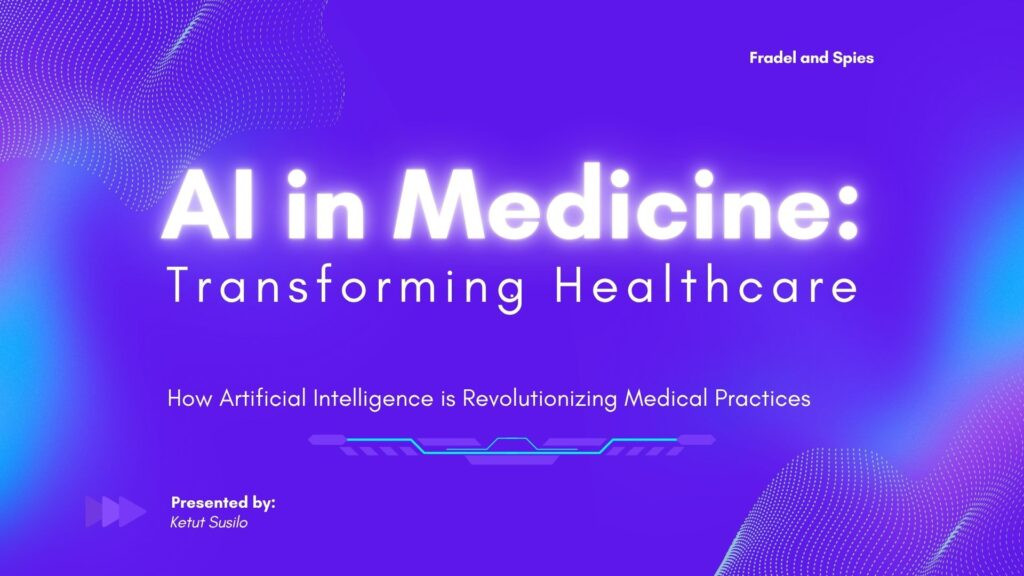Will AI Replace Doctors in Healthcare Shortly

Artificial intelligence is no longer science fiction—it reads X-rays, triages chat messages, and even writes surgical plans. Will AI replace doctors completely, or will it simply give you, the patient, faster and safer care? In the next 15 minutes, you’ll discover how algorithms and humans might share the stethoscope—and why that future still needs your family physician.
The Big Question: Will AI Replace Doctors or Empower Them?
AI already beats humans at image recognition tasks, yet medicine is more than images. You expect empathy, context, and responsibility—not just accuracy. Most experts see AI as a force multiplier, not a pink-slip machine. Still, some routine duties may shift entirely to software in the next decade. Let’s unpack the evidence.
How AI Already Reshapes Clinical Practice
Diagnostic Imaging Superpowers
Deep-learning models interpret CT scans in seconds. Radiologists now spend less time on normal images and more time explaining results to you.
Clinical Decision Support
Electronic health records feed algorithms that flag drug interactions instantly. Doctors act on alerts, preventing harmful combinations before the first pill.
Virtual Nursing Assistants
Chatbots answer post-op questions at 2 a.m. You sleep more easily, and nurses avoid phone marathons.
Result: AI improves speed, consistency, and availability—but under human oversight.
Tasks Where AI Might Replace Doctors’ Routines
| Medical Task | AI Edge | Human Edge | Likely Future Role |
| Screening mammograms | Rapid pattern detection | Empathy when breaking bad news | AI pre-screens → Doctor confirms |
| Triage chat | 24/7 instant replies | Nuanced questioning | AI handles basics → Escalates complex cases |
| Medication refills | Rule-based approval | Judgment for nuances | AI auto-approves low-risk refills |
| Documentation | Speech-to-text accuracy | Contextual narrative | AI drafts notes → Doctor edits |
| Remote vitals monitoring | Round-the-clock alerts | Personalized coaching | AI flags anomalies → Clinician intervenes |
Diagnostic Accuracy: Will AI Replace Doctors in Reading Scans?

Early studies show AI spotting lung nodules missed by seasoned radiologists. Yet false positives still occur. Your doctor’s experience filters noise, reducing unnecessary biopsies. Expect a co-pilot model rather than a solo robot.
Human Strengths Machines Can’t Replace
- Empathy and Trust
You confide fears to a person, not a processor. - Holistic Judgment
Illness touches family, work, and emotions. Doctors weave these threads; AI sees only data. - Moral Accountability
When outcomes fail, society demands a responsible human—not an inscrutable algorithm.
Barriers That Slow AI From Replacing Doctors
- Data Quality Gaps
Biased datasets can misdiagnose minorities. - Regulatory Hurdles
FDA approval processes are rigorous and slow for good reason. - Interoperability Woes
Hospital systems often use different software “languages,” which limits the scale of AI. - Cybersecurity Risks
A hacked infusion pump or altered scan is more frightening than a delayed appointment. - Patient Acceptance
Many people still prefer human hands holding the scalpel.
Ethical & Legal Landscape: Will AI Replace Doctors Without Accountability?
Liability Puzzles
If an algorithm errs, who pays damages—you? The doctor? The developer? Courts worldwide haven’t agreed.
Bias and Fairness
Unchecked AI can widen health disparities. Developers must audit models continuously.
Data Privacy
Your genetic code is priceless. Stricter consent laws loom, forcing transparent data use.
Future Scenarios: Collaborative Care Models
- AI-Augmented Primary Care
Chatbots gather histories; doctors focus on interpretation and rapport. - Robotic Surgery Suites
Machines execute micro-moves; surgeons steer strategy. - Predictive Public Health
City-wide analytics warn communities before flu peaks, guiding vaccine drives.
The common thread? Humans make final calls; AI crunches volume and speed.
What You Can Do Now as Patient or Clinician
Patients
- Ask your provider how AI tools influence your care.
- Check whether second opinions include algorithmic readings.
Clinicians
- Upskill in data literacy.
- Join multidisciplinary AI committees to shape safe deployment.
Pros & Cons of AI in Medicine

Pros
- Faster diagnostics
- Consistent guideline adherence
- 24/7 availability
- Reduced clerical burden
Cons
- Potential bias
- Data-privacy risks
- Loss of personal touch
- Complex liability issues
FAQs
Q1. Will AI replace doctors fully by 2035?
Unlikely. AI will automate routine tasks, but complex judgment and empathy need human clinicians.
Q2. Can an AI diagnose illnesses on its own?
Yes, for narrow tasks like skin-lesion classification, yet final diagnoses still require a doctor’s oversight.
Q3. How accurate are AI diagnostic tools?
Some outperform humans in specific datasets, but performance drops with poor-quality or biased data.
Q4. What medical specialities face the most disruption?
Radiology, pathology, and dermatology—fields heavy on imaging—will see significant workflow changes.
Q5. Are AI medical chatbots safe?
When trained on verified data and monitored, they handle simple triage well. Always consult a clinician for urgent issues.
Q6. How does AI handle patient privacy?
Robust encryption and consent frameworks help, but breaches remain a threat requiring constant vigilance.
Q7. Should medical students fear job loss?
No. Adaptability and AI literacy will make future doctors even more valuable.
Also Read: Pros and Cons of Technology in Healthcare and Its Impact
Conclusion
So, will AI replace doctors? The evidence suggests synergy, not substitution. Algorithms will slice through data mountains, giving doctors—the irreplaceable human element—more time for compassionate care. Stay curious, keep learning, and join the conversation below. Will AI replace doctors entirely? Your insights could shape the answer.

Similar Posts
Modern First Aid In Thomastown: Where Technology Meets Emergency Care
AI Stock Trading in Australia (2025): Platforms, Rules & Risks Explained
Tesla Pi Phone: Reported Specs, Price & Release Date — Rumor or Reality?